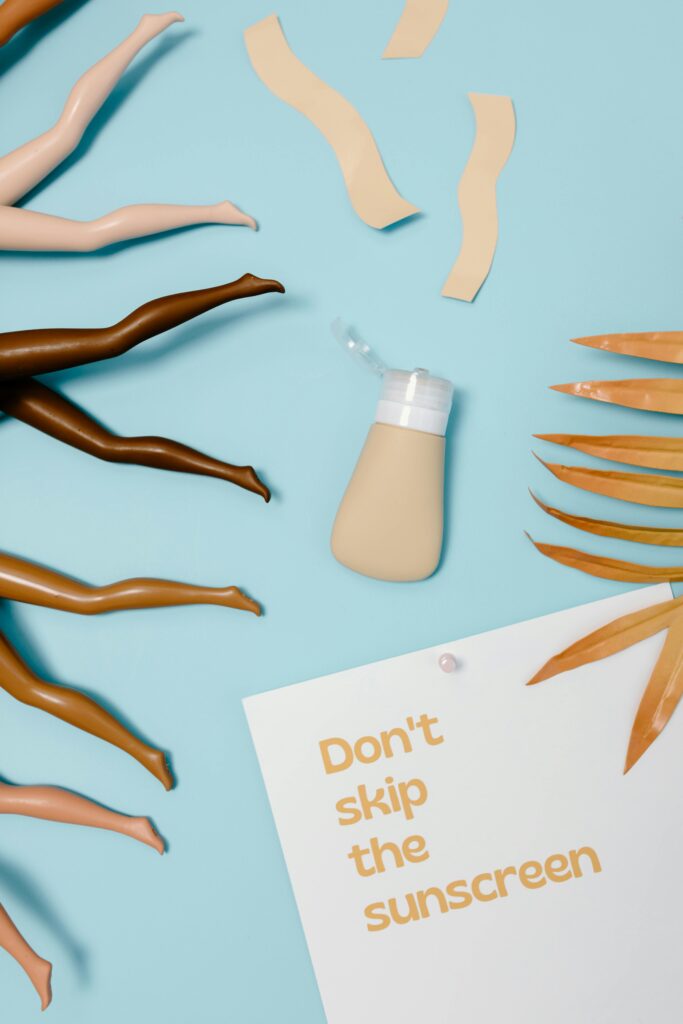The regulations controlling the use of cosmetics in the United States, the European Union, and Nigeria are unique. While research is ongoing, stricter laws and enforcement can protect consumers from unsafe organic skincare products.

Previously, we explored the potential link between using natural skincare products and the prevalence of skin cancer. As consumers increasingly turn to organic skincare products, recent legal cases and scientific studies have revealed several liability issues.
The Importance of Regulation In The Beauty Industry: Who Is Liable?

The EU and the USA have regulatory frameworks that balance innovation and consumer safety. However, the question of who is liable is the most crucial. These laws differ in how they are enforced.
FDA: Regulations On Skincare Products in the USA
The Food and Drug Administration (FDA) regulates cosmetics and drugs in the United States. The two most important laws, the Federal Food, Drug, and Cosmetic Act (FD&C Act) and the Fair Packaging and Labeling Act (FPLA), control beauty products sold in the US.
While the FDA ensures that new drugs are pre-approved to be safe and effective before being sold, this is not the case for cosmetics. Other than color additives, beauty products, and ingredients are not required by law to get FDA approval before entering the market.
Companies are usually held responsible for confirming the safety of their products and ingredients before marketing. The FDA only requires products that have not been tested to carry a label, “Warning — The safety of this product has not been determined.” This regulatory gap allows potentially harmful organic skincare products to enter the consumer market.
However, some laws and regulations apply to cosmetics sold between states. For example, the California Safe Cosmetics Act requires companies to report skincare products sold that contain ingredients known or suspected to cause cancer, birth defects, or other reproductive diseases.
Johnson & Johnson Talc Lawsuit
The Johnson & Johnson talc lawsuit is a good example of legal battles over alleged health risks associated with cosmetic products. In the United States of America, Johnson & Johnson had to deal with about 13,000 talc-related lawsuits as of February 2019.
Talc is a naturally occurring mineral used in makeup and skincare products. The lawsuits claim that J&J’s talc-based products, including Baby Powder and Shower to Shower, were contaminated with asbestos, a known carcinogen. They also claim that people who used these products over a prolonged period were diagnosed with cancers. Asbestos exposure is linked to mesothelioma, ovarian, and skin cancer.
Some reports have speculated that J&J was aware of its talcum powder containing asbestos as far back as the 1970s. They further upheld the claims that they did not inform consumers or report it to the FDA.
The company stopped using talc in its baby powder in 2020, particularly in the U.S. and Canada and globally in 2023. Despite this significant change, they have paid millions in damages and settlements across over 40 states thus far. Since research showed asbestos contamination in poorly filtered talc, the FDA has advised ladies to avoid using cheap skincare products in 2019.
The EU: Beauty Laws, Regulations, and Legal Actions
The European Union enforces some of the strictest cosmetic safety laws under Regulation (EC) No 1223/2009. This regulation bans harmful ingredients, requires market safety assessments, and takes legal action against misleading organic skincare claims.
The EU enforces these laws, requiring national authorities to scrutinize products before market placement and manufacturers to maintain detailed product information files. This regulation ensures transparency and consumer protection, as courts have ruled against deceptive labels.
The newly established General Product Safety Regulation (GPSR), also known as Regulation (EU) 2023/988 of the European Parliament and of the Council of 10 May 2023, became effective as of 13 December 2024. This law replaced the product safety provisions in EU Regulation No 1025/2012 and Directive 2020/1828 and annulled the General Product Safety Directive 2001/95/EC (GPSD) and Directive 87/357/EEC.
The GPSR covers consumer goods but should also apply to goods made solely for professional use that are later sold to consumers. It emphasizes that these products must have safe, relevant Market Surveillance Authorities (MSAs) responsibilities and the requirements for sharing general product safety information.
Unfortunately, due to settlements and confidentiality agreements, the general public has limited access to information on legal cases related to misleading claims in the EU.
The Role of NAFDAC in Nigeria’s Beauty Industry
The National Agency for Food and Drug Administration and Control (NAFDAC) enforces cosmetic safety regulations. It has regulations like the Cosmetics Products Regulations of 2019, which were created to prohibit bleaching agents. However, the oversight of organic skincare products leaves a grey area.
In line with the global best practices, NAFDAC introduced the 2024-2027 strategic plan at its recent stakeholders meeting in 2024. The agency intends to focus on:
- Enhancing regulatory oversight includes frequent inspections, improved lab testing, and stricter enforcement. It will also address eCommerce growth and ensure that these regulations align with global standards from WHO.
- Promoting consumer awareness: Beyond educating the public on product safety, quality, and labeling, it will empower consumers to make informed choices and report suspicious products.
- Strengthening stakeholder collaboration: Partnering with industry, academia, and regulators will ensure better coordination and clinical trials.
- Improving quality management systems: This focuses on helping monitor safety, manage recalls, and maintain product consistency.
These strategic objectives and interventions were signed on November 12, 2024, by Prof. Christianah Mojisola Adeyeye, the Director General of NAFDAC. Moving forward, this will address challenges with the safety and quality of regulated products. Considering the loopholes in research and regulation, there is a need for stronger consumer protection in Nigeria.
Conclusion: Skin Cancer Awareness & Safer Organic Beauty Products

The statistics surrounding skin cancer are not accurately recorded in Nigeria because it is still largely underdiagnosed. There is still a huge gap due to insufficient awareness campaigns and inadequate resources. While research is ongoing, we all have a role to play to ensure consumer safety.
To improve cosmetic safety, we must go beyond stricter monitoring, enforcement, or regulations. This will include regular inspections and better lab testing. Companies must conduct comprehensive product testing before launching items. Quality management and post-market surveillance tools will keep manufacturers of organic beauty products in check. Policymakers and regulators must inspect cosmetics and enforce safety standards. Before buying skincare products, do your best to research the ingredients.
The American Cancer Society (ACS) and American Academy of Dermatology Association (AAD) recommend applying sunscreen with an SPF of 30 or higher to limit your skin’s exposure to UV rays. You should also wear protective clothes, hats, and sunglasses.
Sources and References
- FDA (USA): Cosmetics & U.S Law
- FDA (USA): Federal Food, Drug, and Cosmetic Act (FD&C Act)
- FDA (USA): FDA Authority Over Cosmetics
- California Safe Cosmetics Program (USA): California Safe Cosmetics Act
- J&J Talc Lawsuit: Johnson & Johnson to stop selling baby powder in North America
- J&J Talc Lawsuit: Johnson & Johnson to stop selling talc-based baby powder in North America
- J&J Talc Lawsuit: Johnson & Johnson to stop selling talc-based baby powder globally
- FDA (USA): FDA advises consumers to stop using certain cosmetic products.
- EU Regulations: Regulation (EC) No 1223/2009 on Cosmetic Products
- EU Regulations: Amendments to Cosmetic Regulations, Guidelines and Claims
- NAFDAC (Nigeria): NAFDAC Cosmetics Guidelines
- NAFDAC (Nigeria): Cosmetics Products Regulations of 2019
- American Cancer Society (ACS): Sun and UV Exposure
- American Academy of Dermatology Association (AAD): How To Apply Sunscreen
- National Academies of Sciences E, Division H and M, Studies D on E and L, et al. Sunscreen, Preventive Health Behaviors, and Implications of Changes in Sunscreen Use for Public Health. National Academies Press (US); 2022.
